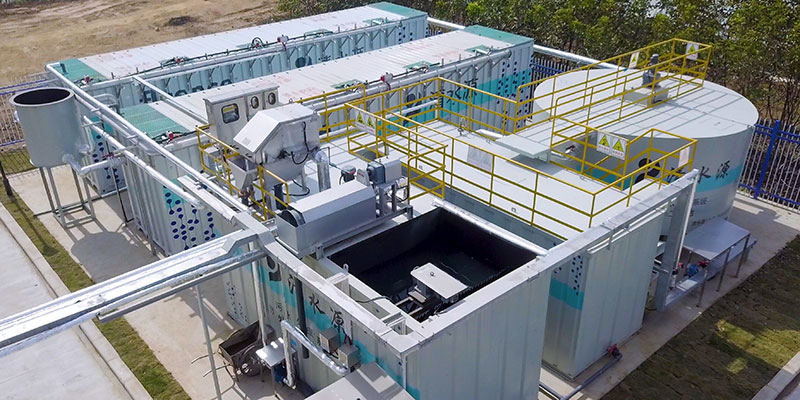
A key aspect of WASH Within Reach is that focus should be concentrated on the local and regional levels, making decentralized treatment a natural fit.
Decentralized water reuse can be the key to achieving water, sanitation, and health milestones
The Wilson Center and Circle of Blue’s WASH Within Reach project has reported that we’re making progress toward one of the United Nations 2030 Sustainable Development Goals (UN 2030 SDGs).
The sixth sustainability goal (SDG6) is about water sanitation and health (WASH), which are essential to the fulfillment of almost all other SDGs. During the COVID-19 pandemic, we have seen the benefits of spending 50 years and $400 billion on WASH systems.
WASH Goes Small and Local
One key insight is that focus should be concentrated on the local and regional levels. Unlike the power and energy sectors, water tends to be serviced by local providers, and regional governments tend to face more WASH-related challenges than national governments. Social enterprises have developed the models needed to realize SDG6, but governments have the power to realize them with service delivery systems. Success requires collaboration between the two.
In the 20th century, the prevalent model for achieving WASH goals relied on altruistic foreign benefactors providing large amounts of sanitation equipment to deliver low-cost services to developing areas. But when funding stopped, so did the water, and many hand pumps and toilets fell into disrepair. Although driven by the best motives, expectations proved unrealistic.
The new front-line heroes of the WASH struggle are smaller, local, and committed in the long-term. For example, in Africa, a tiny but agile rural water company has been extending its reach, increasing water quality and monitoring. In Nairobi, a local company of the budding circular economy has attracted significant foreign investment to scale up its operation, which recycles 12,000 tons of restaurant and human waste into biogas, compost, and animal feed while managing 3,500 public toilets.
A Safe Water Network representative explained:
Based on anecdotal data and our experience, we see small water enterprises as a particularly resilient safe water solution during public health crises.
The director of Cape Town’s RockBlue nonprofit, which provides technical help for water utilities in Southeast Africa, reported that local water utilities have coped well with the pandemic:
One point to make is that these guys are scrappy. They know how to make do when things get tough. If there were service interruptions, I didn’t see it.
Decentralized Wastewater Treatment
The WASH Within Reach project reinforces a truth that Fluence has tried to amplify: The time has come for decentralization. In the wastewater treatment sector, decentralization simply means installing appropriately scaled smaller plants near the source of need to generate a host of benefits.
Decentralized wastewater treatment avoids construction of expensive pipelines to distant central plants and the complex jurisdictional negotiations that often delay their construction for years.
It can help small communities turn their wastewater into safe, sanitary water that can then irrigate surrounding farms, taking the burden off drinking-water supplies.
It can deliver control to small, local utilities that can react more quickly in emergent situations. Fluence’s Aspiral™ line of modular wastewater treatment units can be monitored and operated with a smartphone app by non-specialized personnel. Built inside standard shipping containers, the units can be delivered and installed quickly, and can be scaled up or down with demand.
Modern funders of WASH efforts are aware of the mistakes of the past. As Laura Brunson of the Millennium Water Alliance put it:
The sector has moved beyond dumping infrastructure into the ground. There is more focus now on other critical factors […].
At Fluence, we understand the need to continuously shepherd our projects with technical support and service throughout plant service life. Contact our experts to discuss how to meet SDG6 even in the most remote service areas.
